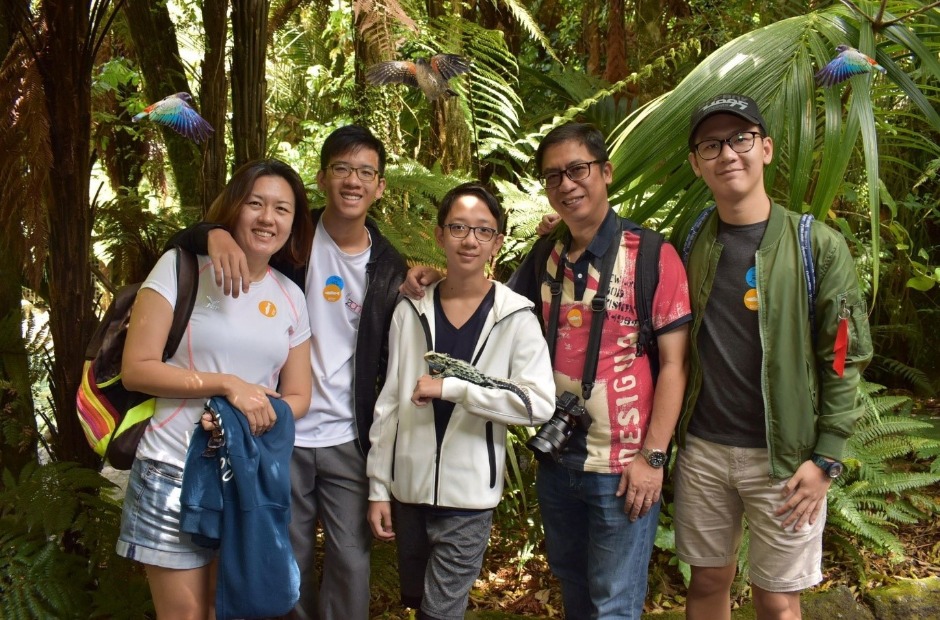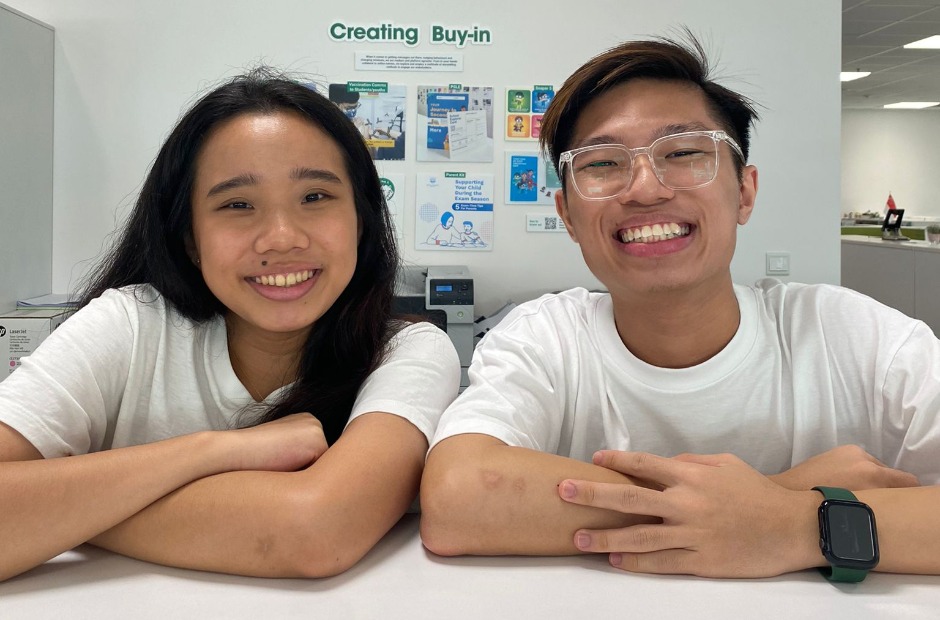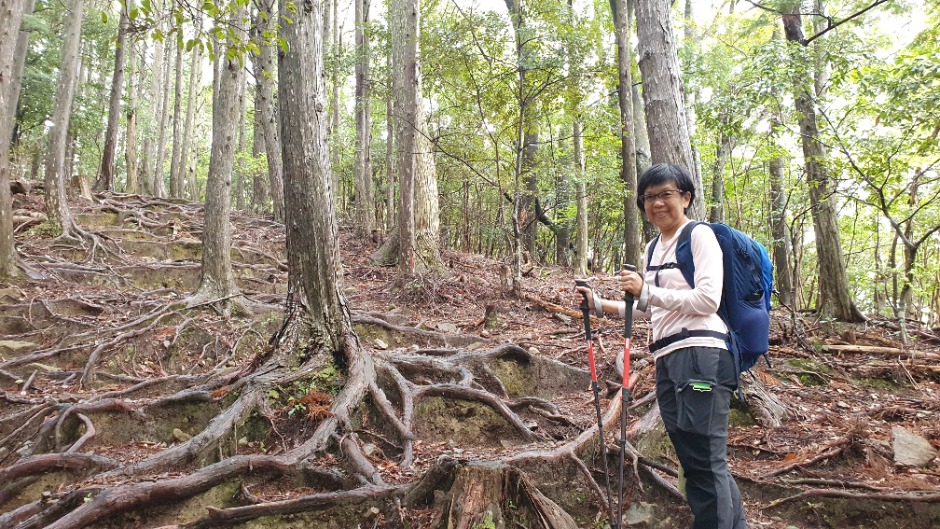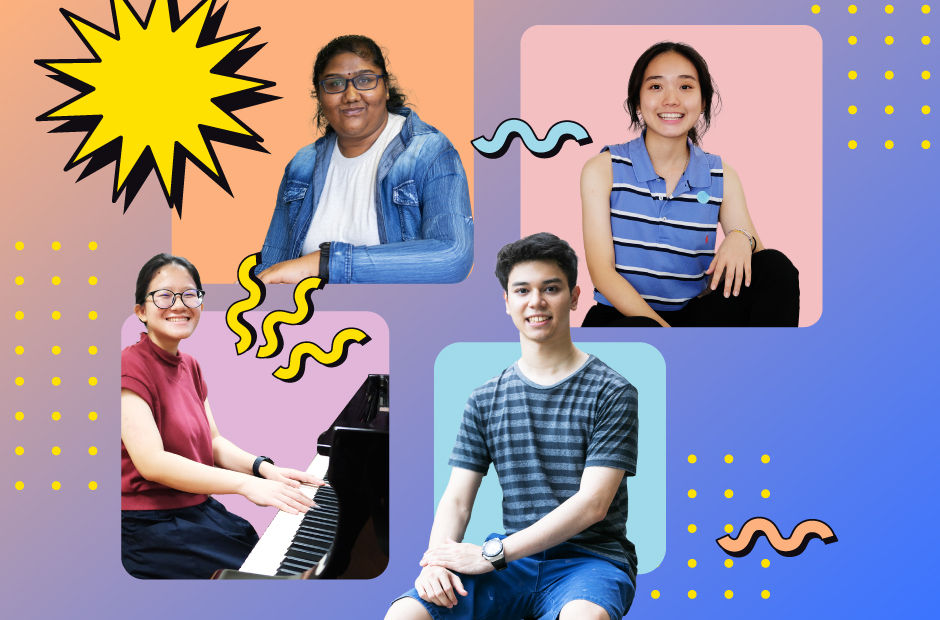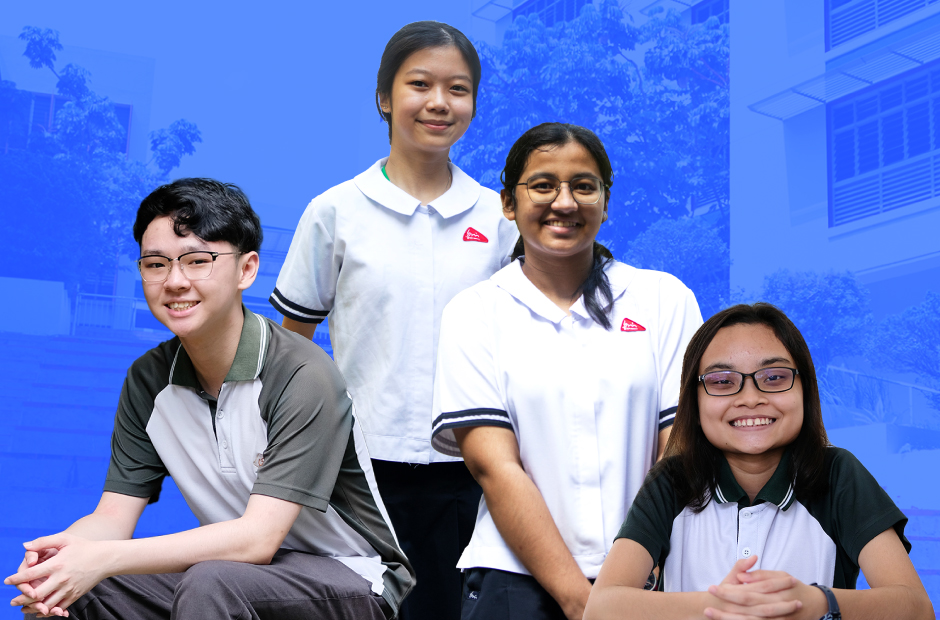Questions about courses and careers ahead? An ECG counsellor can point the way
26 Oct 2023
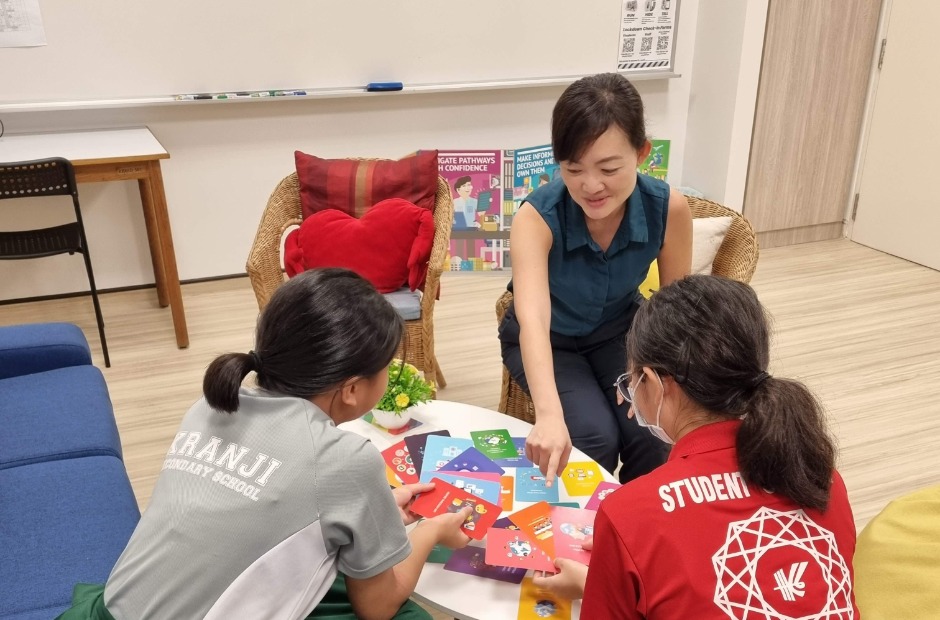
Education and Career Guidance (ECG) counsellors cannot foretell the future but they can certainly empower students to make more informed learning and career decisions. Two ECG counsellors share how they help students navigate their education pathways.
By Lim Jun Kang
When Mr Tony Gui’s daughter was 18, she was at a crossroads. She asked him a question he wasn’t prepared for: “So what should I do next?”
She was completing her final junior college year and looking at a blank in the horizon.
As Mr Gui recalls, the same advice he used to guide her through her primary and secondary school days didn’t seem to apply anymore.
“I used to tell her to ‘do your best in school, get the best grades and you can do whatever you want’,” he recounts. But she wasn’t sure what she wants, so what was he to say next?
Fast forward a few years and Mr Gui is now an Education and Career Guidance (ECG) counsellor with Anderson Serangoon JC. He says he knows better now what he should have told her back then.
Guiding students through a journey of self-discovery
ECG counsellors like Mr Gui are deployed across secondary schools and tertiary education institutions in Singapore to help students navigate the fast-changing education and career landscapes around us.
Each junior college is equipped with an ECG counsellor while every two secondary schools are supported by one.
A student’s ECG journey usually starts right from Secondary 1, when they are encouraged to explore the question “Who am I?”. This exercise helps them to learn more about themselves and their interests.
The crucial stage comes the following year, when students will need to be aware of how their subject combinations may impact their post-secondary education options and future career choices, says Ms Lum Lai Mung, a senior ECG counsellor at Kranji Secondary School.
 Ms Lum using ‘Challenge Cards’, or conversation starters that help students understand more about themselves, during a session with students.
Ms Lum using ‘Challenge Cards’, or conversation starters that help students understand more about themselves, during a session with students.
That’s where ECG counsellors can step in to plug any info gaps. “At their stage of life, secondary school students may not have the opportunity to make many significant decisions. Some may have relied on their parents for their school selections or even subject combinations.”
While ECG counsellors cannot foretell the future, they can however, alleviate some uncertainties by helping students discover their strengths, preferences and interests.
Mr Gui concurs. After training as an ECG counsellor a year ago, he knows now he should have sat his daughter down for just that kind of talk, then explore the kind of courses and careers that could get her closer to her dreams.
Year-round programmes to showcase possible choices
Workshops, school seminars and career counselling sessions are organised by ECG counsellors across the school year to bridge the gap between what is learnt in school and the skills required in the current job market. For instance, an ECG fair is conducted annually for the graduating cohort at Kranji Secondary. Facilitated by Ms Lum and the school team, the event features further education and career talks by post-secondary institutions, industry partners, Parent Support Group, and alumni.
During the event, students gain insights into various industries, the skillsets required for each sector, and the personal work experiences of the speakers, some of whom are mid-career switchers.
On why conversations with mid-career switchers are especially important, Kranji Secondary School’s Mr Joshua Ang Yong Quan, Subject Head, Citizenship and Character Education, explains, “They show the importance of being a lifelong learner who is adaptable. It is highly unlikely our students will remain in one fixed career for the rest of their lives, so we hope the spirit of resilience and adaptability can rub off on them.”
“The ECG fair also helps students who may be fixated on certain careers, to show them that their choice of career may not be as easy as it seems. They will need to strive harder or re-examine their choices,” says Mr Ang.
Some students shared with Mr Ang how they reconsidered certain career choices after getting a better understanding of the sectors. “To me, that is a valuable learning experience. They are more aware of what they want from their careers,” he adds.
Career symposiums and scholarship fairs are also held at the junior college level. Similar to career fairs in secondary schools, students can meet companies and industry partners to learn more about the work involved in each sector.
Students can get a taste of the working world too
Hands-on experiences are essential for learning and development. For students, work attachments offer a glimpse into the real working environment, allowing them to gain experience and explore different career paths.
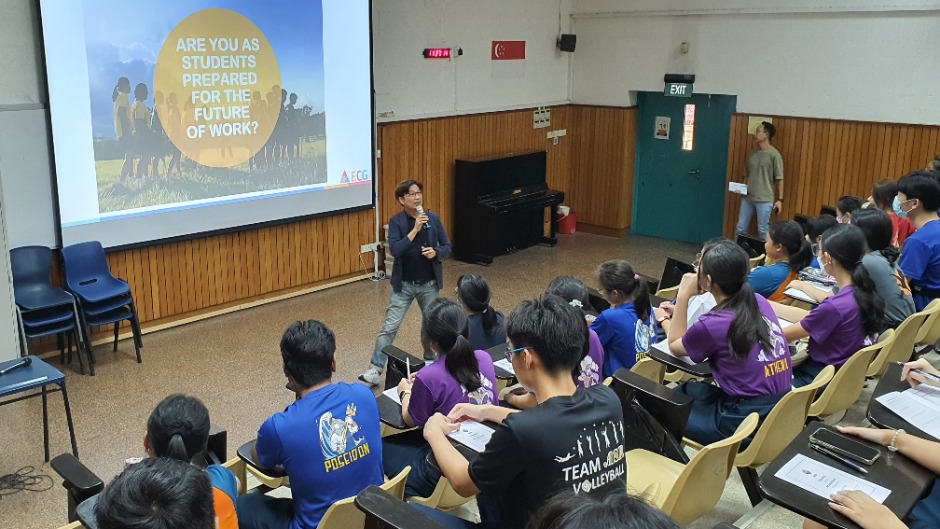 Mr Gui conducting a workshop preparing first-year students for their work attachments after examinations.
Mr Gui conducting a workshop preparing first-year students for their work attachments after examinations.
Mr Gui helps curate learning journeys and work attachments for junior college students before they embark on their second and final year of their studies. Drawing on his experience as a mid-career switcher with prior work experience in engineering at a tech company, Mr Gui leverages his extensive industry knowledge and connections to organise insightful learning journeys.
Surveys are conducted to gauge the students’ interests in various industries. Based on the top choices, Mr Gui, along with the school’s ECG team, then reaches out to relevant industry partners to set up work attachments for the students.
Such stints provide students with first-hand experience and observations of what it is like to work in various industries, such as the healthcare, engineering and early childhood education sectors. “At the end of the day, we want to make sure that regardless of the programmes the students go through, they must be able to experience what it is like out there when they graduate,” Mr Gui says.
He observes that some students and parents still think that certain career choices are “safer” or “more reputable”, such as careers in the engineering or finance sector.
“Gone are the days when we look solely at job titles,” he says. “Employers now look at skillsets that a young graduate should have to help the organisation navigate the complex world.”
Make an appointment for personalised advice
Apart from facilitating schoolwide events, ECG counsellors also provide one-to-one counselling to students who require additional support.
It is not uncommon for the counsellors to encounter students who are uncertain about what they are passionate about. This may sometimes lead to a slippery slope, where students pursue further education in fields that they are not interested in, only to end up with an unfulfilling career.
To get them talking and exploring, ECG counsellors often use a range of resources and tools. These include the MySkillsFuture portal, which identifies one’s strengths, values, interest, personality and existing skills.
They also use “Challenge Cards”, which are conversation starters that get students to reflect on any roadblocks they face, and to think about the resources and skills they need to overcome them. These conversations not only help build rapport between the ECG counsellor and the student, they also kickstart the student’s process of self-discovery.
“It is important that ECG counsellors don’t come in with any bias and end up dictating what we think is best for the students,” Mr Gui adds.
‘Are your dreams realistic?’
For some students, a chat with an ECG counsellor may be all that is needed to help them cut through the fog.
Ms Lum recalls an encounter with a student who had hoped to become an astrophysicist but was not doing well academically. His fixation on getting a university degree to get there led to frustration; it started to kill his passion for the field.
“I had to strike a balance between managing the student’s self-esteem up and being practical,” Ms Lum says. “It is possible for him to achieve his dreams, but I reminded him that there could be other pathways to get there.”
As she struck up more conversations with him, she introduced alternate paths, such as polytechnic courses and work opportunities, that could open doors to the same outcome. With greater clarity, the boy’s hope was renewed, and his behaviour and grades improved.
As for Mr Gui’s daughter, while she may not benefit from her father’s newfound expertise, but she did so from her college’s ECG efforts. It organised a career symposium which sparked her interest in careers with the Singapore Navy. She has since signed on with the maritime service branch of the Singapore Armed Forces.
We are on Telegram! Subscribe to our channel: https://t.me/schoolbag_edu_sg

